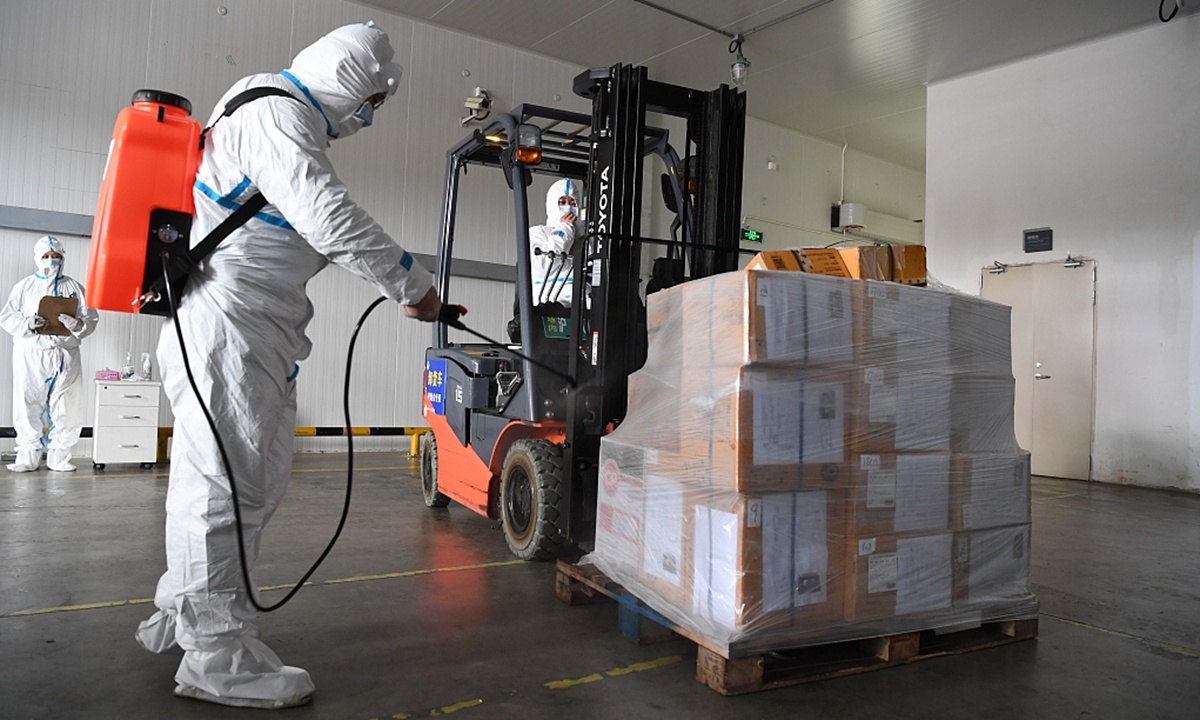
cold chain (Photo:VCG)
The shadow of Chinese technology companies is looming in the imported cold chain checking procedures, as a tech arm of Alibaba said they are working with local governments to help with tracking of the imported cold chain, ensuring the safety of cold chain food.
"We are working with local governments on the system, and welcome more governments to join it," Alibaba Cloud told the Global Times on Friday.
The remark came after Alibaba Cloud formally launched a self-developed cold chain tracking system on Thursday, against the background of at least 16 provincial-level regions in China that have detected coronavirus on imported cold chain food or their packaging since June this year.
Also on Thursday, 10 boxes of black tiger shrimps imported from Thailand were attached to a QR code in Wuhan, Hubei Province. It was the first code generated using the province's tracking platform for imported cold-chain food.
The system provides information including the record of cold food storage, the main body of the cold chain, the inflow and outflow of cold chain food and the production and sales of different types of cold chain food, Alibaba Cloud said.
Alibaba Cloud said the system is based on the AntChain product Provenance solution and clarified that it is only the technology provider. Currently, it covers imported cold chain products including seafood and meat.
Zhejiang Province adopted the system as early as June this year, followed by Zhengzhou, Central China's Henan Province in November, and Hubei Province in December. "More cities are in the pipeline," a source close to the matter told the Global Times.
A report from Zhejiang Daily in June reported that consumers can obtain product information of cold chain foods, including where it is from, the production or import batch numbers, importer or supplier information, and the inspection and quarantine information.
Alibaba said the system has helped the government to curb the virus spread.
A batch of frozen pork from Argentina tested for positive COVID-19 in Zhengzhou, Central China's Henan Province on November 13. Since the supply chain information for the pork had been updated into the cold chain food tracking system, the local CDC tracked the information of the import company, related quarantine certificates and transportation vehicles to get a lock on the goods in a short time so these goods did not enter the market.
Chinese customs also vowed that it will further enhance inspection on cold-chain imported foods in a bid to prevent the risk of imported COVID-19 infections as winter approaches.
Two beef producers from Brazil and one from Argentina have had their exports to China suspended for one week after packaging of their products tested positive for traces of COVID-19, customs said on Friday.
As of November 11, China suspended 99 companies' exports from 20 countries with employees infected with COVID-19, of which 82 companies have voluntarily suspended exports to China after the outbreak.


